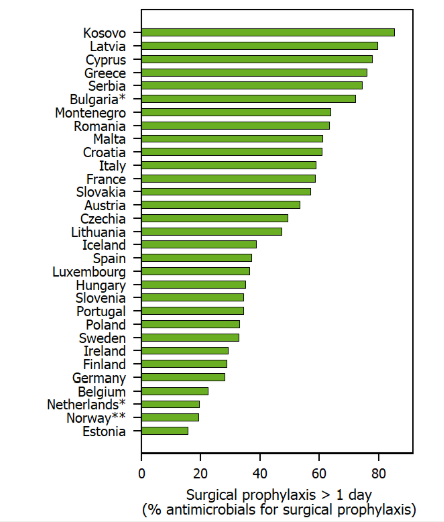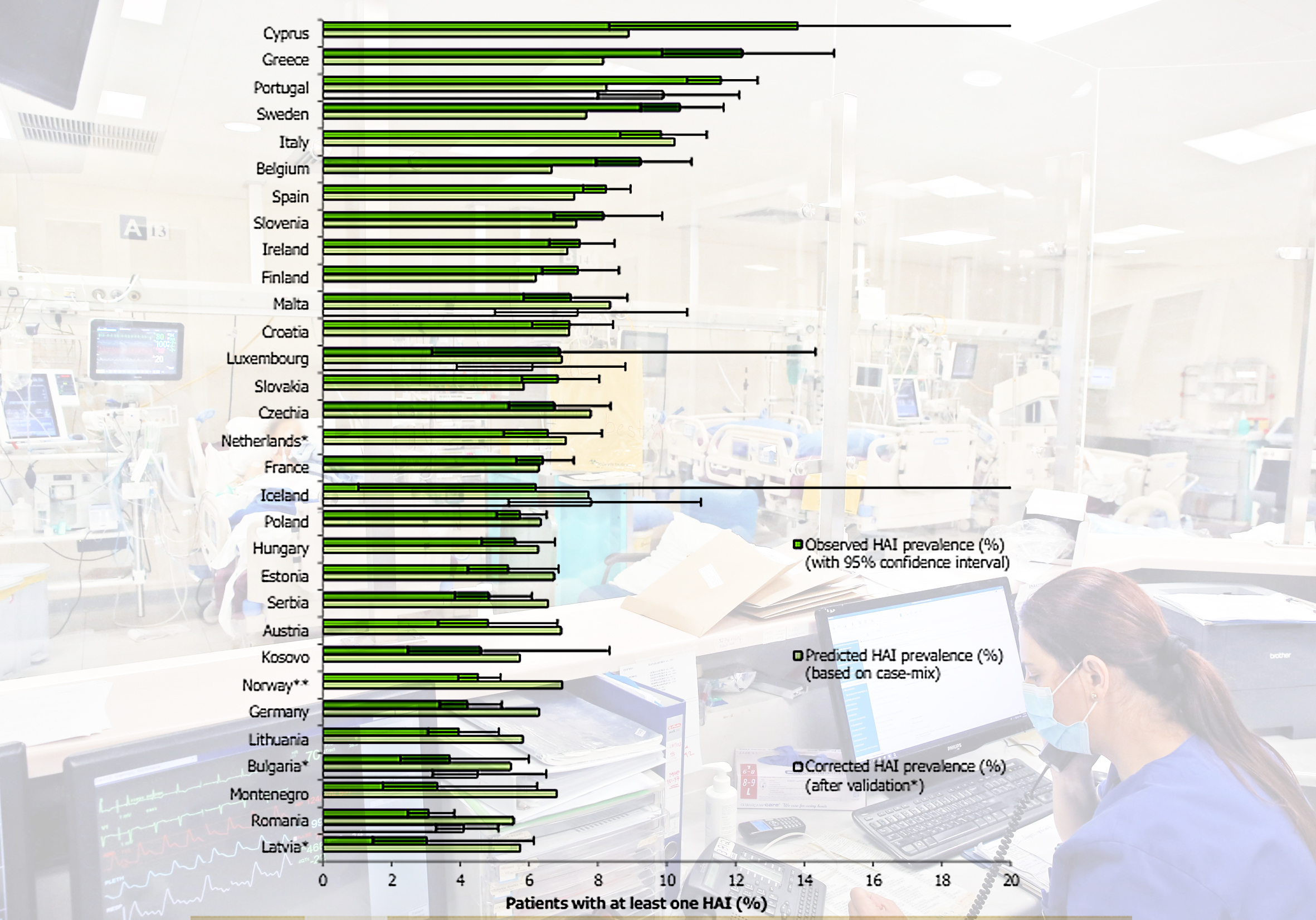Filenews 10 May 2024 - by Marilena Panayi
Cyprus is first in nosocomial infections and the reckless use of antibiotics, first in antimicrobial resistance.
The European data, as recorded in the latest report of the European Centre for Disease Control (ECDC), are not honorable for our country. One in seven patients who are hospitalized has a nosocomial infection during their hospitalization. It is also mentioned that the prevalence of nosocomial infections depends on various factors, such as the type of hospital, the healthcare system, the type of patients co-hospitalized (comorbidities), the different protocols applied, the level of education and skills of health professionals, etc. For the purpose of correctly calculating the data per country, in this European study all parameters were taken into account and a common one was used an accounting model in which common adjustments were applied in order to draw uniform conclusions for each country.

Generally in the European Union it is estimated that every day 4.8 million hospitalized patients develop a nosocomial infection. Rates between EU Member States vary significantly, with the lowest recorded in Latvia at 3% of hospitalizations and the highest in Cyprus at over 13% (13.8%), with the EU average at 7%.
Apart from that, in Cyprus there does not seem to be a proper organization of the system to deal with the problem and, while as a country we get good marks in terms of the ratio of nurses / infection surveillance per 250 hospital beds, we get practically zero in the presence of specialists for nosocomial infections and for the rational use of antibiotics. That is, while Cyprus is above the EU average in terms of the presence of specialized nurses in hospitals with a ratio of 2.48 nurses per 250 beds, the prevailing picture regarding doctors is very different, since there do not seem to be, with a few exceptions, doctors working in hospitals and dealing exclusively with issues related to infections.
There also seems to be a significant gap in Cyprus regarding the training of doctors in general in relation to the proper and reasonable use of antimicrobials and in the logistics of inpatient administration of antibiotics. That is, it seems that there is no proper monitoring of patients' response to the antibiotic preparations administered to them and there is no institutionalized procedure for de-escalation of the administration of these preparations. At the same time, the compliance of health professionals (doctors and nurses) with simple measures to limit the problem, such as the proper application of hand hygiene or the adequate use of appropriate antiseptic and disinfectant materials, seems problematic.
These data are also consistent with the picture presented by Cyprus and the reckless use of antimicrobials. In particular, and always according to what is recorded in the ECDC report, Cyprus, in addition to being the first in the occurrence of nosocomial infections, has significantly high rates and is in the first places in terms of the use of antimicrobial preparations within hospitals. At a time when the EU average for inpatient administration of antimicrobials is 32.4% and countries such as Hungary record rates of only 20%, Cyprus has a rate of 56%. Simply put, 56 out of 100 patients who are hospitalized every day receive an antibiotic preparation. In fact, as shown by the analysis of the data, among the formulations used is a large number of advanced, that is, powerful, antibiotics, whose possible unjustified use leads to an increase in multidrug-resistant microbes. Regarding the frequency of multidrug-resistant microbes, it is recalled that our country is already in the highest positions in the EU in terms of antimicrobial resistance, entering a vicious circle of creating multidrug-resistant microbes and using advanced antibiotics. Cyprus also records a huge percentage in the reckless administration of antibiotics for surgical prophylaxis. About 75% of patients receiving antibiotics for surgical prophylaxis receive it for more than one day (higher percentages than Cyprus are recorded only in Kosovo and Latvia), which in the vast majority of cases is unjustified and has only negative consequences for both the patient and the community.

What is recorded in the report and concerns Cyprus, for those of us who are in the field of infections, prove what we have been observing unfortunately in practice for a long time, Assistant Professor specializing in infection prevention and control Constantinos Tsioutis told F. "The cost in human lives, quality of life, disability, but also the economic cost of hospital-acquired infections is huge worldwide," he said and added, "our state has unfortunately been in the first places in antibiotic consumption, multidrug-resistant microbes and nosocomial infections in Europe for many years. Urgent and seriously organized intervention by the Ministry of Health and competent bodies, such as the HIO and the administrations of all hospitals, is required to try to reverse this tragic situation on our island, which costs lives every hour."
Huge percentage of use of urinary catheters and intubated patients
The analysis of the data, as recorded in the relevant report, shows that in Cyprus there is excessive use of urinary catheters (which are one of the risk factors for infection). Specifically, the percentage of hospitalized patients in whom a urinary catheter is placed in Cyprus reaches 39.2%, while the EU average stands at 20% (the lowest rate is recorded in Lithuania at 6.7%).
In addition, the percentage of intubated patients in Cyprus is also high. Of the total patients who participated in the study from our island, 6.7% were intubated, with the EU average being 2.4%.
